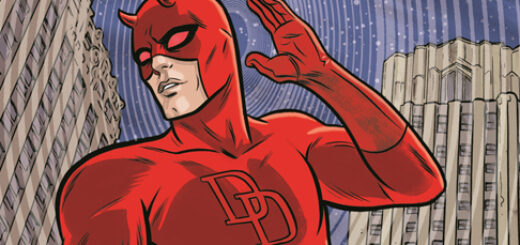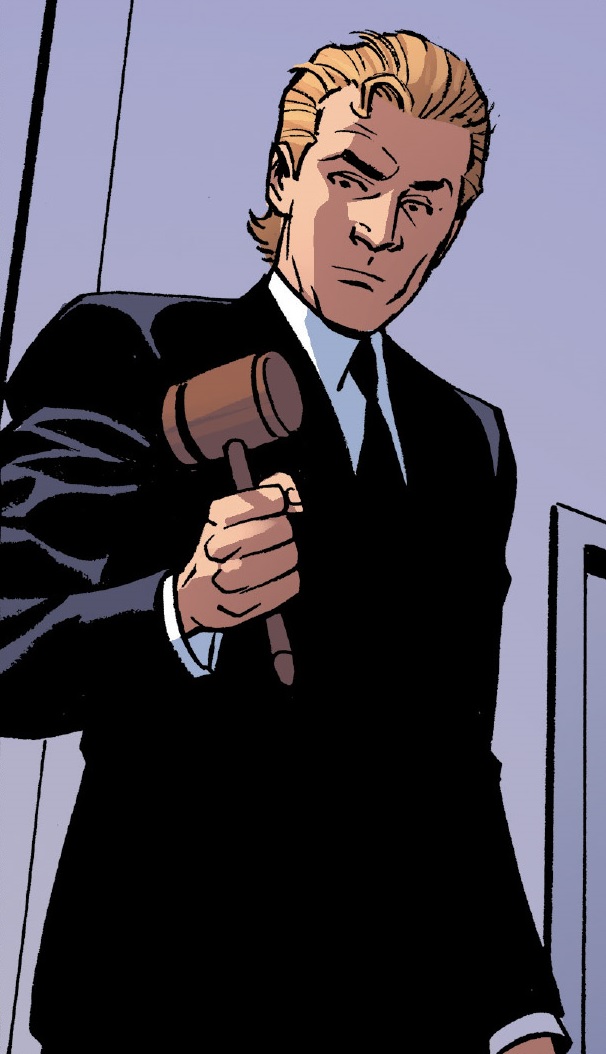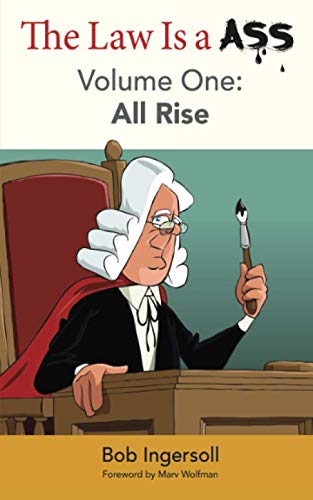TO: Randall L. Stephenson, Chief Executive Officer, AT&T
CC: John Stankey, Chief Executive Officer, Warner Media
Dear Mr. Stephenson,
My name is Michael Davis. I’m sure you know me as I have been a loyal AT&T phone customer for many years.
I know what you’re thinking. You think I’m a bit off my rocker. How ON EARTH could you know me just because I’m an AT&T phone customer?
That’s just silly.
You know me because I have my home, cell phone as well as my Internet and cable with AT&T.
I’m told you have a sense of humor and I hope my opening gave you a chuckle. What the remainder of this letter holds is far from funny.
I’m sure you’re aware when AT&T purchased Time Warner, it became the owner of DC Comics. DC Comics holds some media rights to Static a.k.a. Static Shock through an arrangement with the copyright owner and content creator Milestone Media a company I co-founded.
Full disclosure: DC Comics and I have history. Once I was a welcomed creator; however, the last two decades have seen me banned, literally blacklisted. Long story short; I said the right thing to the wrong person. Please don’t take my word for any of this— the paperwork is readily available at DC. However, this narrative isn’t about me. This article is about property now under your control— the aforementioned Static Shock.
I am no longer a part of Milestone, and they have nothing to do with this letter. I am representing myself and the millions of fans of Static Shock waiting for his return.
Simply Googling Static Shock will enlighten you to the sheer power and reach of the much-beloved character. There are thousands of fan clubs and fan films. Static is a favorite choice of new and seasoned cosplayers from child to adult.
Here’s the kicker—the vast majority of the fans of Static were born after the series had run its course both on television and the comics. In other words, its sheer word of mouth behind the enormous appeal of Virgil Hawkins, aka Static.
AT&T is the nation’s second-largest advertiser— imagine spending no advertising dollars but seeing the demand for your product grow year after year.
That, in a nutshell, is the essence of Static Shock.
“AT&T gives you more for your thing, More entertainment, Internet, and unlimited plans. More for your thing. Yeah, that’s our thing.”
The Your Thing national campaign from AT&T and BBDO focused on the uniqueness of its customers’ request for things that mattered not just words spoken in support of a product. How significant AT&T’s support of the Black community is evident to me by your doings with Believe Chicago.
I don’t point out AT&T’s investment in the African American community, both financial and social, to suck up. I’m not that guy— if I was, I believe I’d still have a home at DC. No, I point out your involvement because I feel there’s a chance, albeit a slim one my plea and the pleas of millions of fans will not be lost in the abundance of requests received by a corporation the size and scope of yours.
Put bluntly, Static is a national treasure among millions of fans, both black and white. However, among black kids, he’s more much much more. As a black man who grew up with so little black representation in media and almost none in the superhero space, so few I had to create my own— it saddens me beyond measure that today is just as bleak as yesterday.
Ignoring the impact of Static makes little sense financially. However, ignoring Static‘s prominence in the black community is corporate callousness at its highest level, in my opinion.
History aside, I nevertheless consider DC’s universe the best in the industry, and the vast majority of those employed there are among the elite in comics.
Dan Didio and Jim Lee are remarkable people who are real fans of the medium. Before they joined DC, I was in business with Dan at ABC-TV and Jim at Image Comics. Nothing but good came from those creative arrangements.
There are companies on the net as I write this selling Static Shock merchandise as if they had licensed them legally from DC and Milestone and they have not. They do so openly with no worry of being caught, let alone punished by one of the world’s most powerful corporations.
If that doesn’t underscore the banking power of Static, then nothing will.
Static Shock generates millions of bootleg dollars while black kids continue to make their own Static Shock content because Warner Bros. and DC Comics will not.
Sir, I’m thoroughly and painfully aware of legal agreements that supposedly make impossible resolutions to what seems a simple fix.
My response is— so what?
Static‘s impact can do wonders with boys and girls of color who see little to strengthen identity put much to weaken it. A president who often speaks of the first black president as unintelligent and lazy. A country returning to a time when if black merely waiting for a friend at Starbucks can get you arrested.
An America where a black man simply saying ‘lower Alabama’ can get you thrown out of a Hilton Hotel and threatened with arrest. Protesting to the police the Hilton’s prejudicial actions can get you killed. So, the thing to do was leave the hotel humiliated rather than face that possibility.
That happened to a guy I know.
Static is more important than a contract, and more significant than any agreement meant for commerce and revenue. A beloved black character not just kept alive by word of mouth but flourishing alone is a goldmine for AT&T if it makes a billion dollars or not a dime.
Agreements are vital; I’m just saying exceptions made for the greater good I would argue keep us dare I say civilized. I’m currently breaking an agreement preventing me from discussing the very matters this article covers, doing so for the greater good.
That “agreement” is a damning smoking gun evidence of a decision made with malice. What did I do to justify a sustained policy of exclusion?
My contributions to the company were never in question; they are stellar. So stellar are my doings at DC it begs the question: is Static Shock being held back because of a personal dislike of Michael Davis?
I’ve been labeled troublemaker, among other things. That’s true—I’m trouble when approached like I’m a child talked to like I’m stupid.
I’m far from stupid. Can’t say the same for the person who sent a fraudulent letter with false information in a bid to stop me from becoming President & CEO of Motown Animation & Filmworks.
That’s stupid.
Having two employees lie to try and frame you?
That’s criminal.
I said Milestone is capable of exploiting Static with or without DC’s involvement, but I hope it is with DC that the next stage of Static happens. DC does the best books in the industry, and the power of AT&T and Time Warner’s reach is awe-inspiring.
The knock, on black content, is diversity doesn’t sell. That usually comes from those who don’t sell diversity because they can’t.
Milestone’s Reggie Hudlin Derek Dingle and Milestone’s inventor Denys Cowan can sell diversity. They have done so all their professional lives.
Static has a worldwide following ignored by DC and Warner Bros. With help from AT&T Warner Bros. and DC Comics I believe Static will do the kind of numbers as a movie to rival or even surpass Black Panther.
Lastly, I leave you with this.
I have history with AT&T also. Your company are sponsors of my forum the Black Panel. I’ve also been invited to participate in various AT&T art shows at AT&T corporate in New Jersey.
Speaking of art, AT&T has one of the most celebrated art collections in the world.
Among the acquisitions are paintings by William T. Williams, underscoring AT&T’s dedication to Black America. Mr. Williams was the first Black artist inducted into Janson’s History of Art.
When that moment happened, he refused. He refused because he felt Janson should acknowledge other black artists that came before him.
Janson did just that; they included other notable African American artists.
The Janson History of Art did that regardless of the time and money it took to accomplish this. Janson is the world leader in art history publications, and to do so was a massive undertaking.
However, it was the right thing to do.
There’s a DC Comics connection to Mr. Williams. The painting used to represent his work is called Batman. Just so happens, Batman is my favorite superhero, I was obsessed with the 60’s TV show.
So much so it drove me to love drawing Batman, which kept me inside and helped keep me alive. My sister and grandmother both died violent deaths that could have easily been me and almost was.
My love of drawing Batman turned into loving art that led to working at Mr. Williams studio. I was working in the studio of a world-renowned artist at a very young age.
I was ten.
He had me ‘work’ in his studio to keep me safe.
William T. Williams is my mentor, my hero, and my cousin. Batman was named with me in mind. So, a DC Comics character is featured in the most influential art history book in the world because of me.
I needed heroes to help me stay alive and when real ones were not available, I found them in comics. I’d like to work with DC again but if it will help get Static to the next level, I’ll sign an agreement stating I won’t use the letters D or C for the rest of my life.
That’s ridiculous, I know.
Not as ridiculous as ignoring the almost 800,000 views David Kirkman’s Static Fan Film has in only weeks on YouTube fueled by just word of mouth. Now think about that number with the power of AT&T Warner Bros. DC Comics and Milestone all operating in concert.
Please consider taking a moment and examine what may be possible.
“AT&T gives you more for your thing, More entertainment, Internet, and unlimited plans. More for your thing. Yeah, that’s our thing.”
All the millions of Static Shock fans ask is for you to do your thing.
—Michael Davis, PhD
Los Angeles, CA
July 2019







 How do you prove that you’re you?
How do you prove that you’re you?












